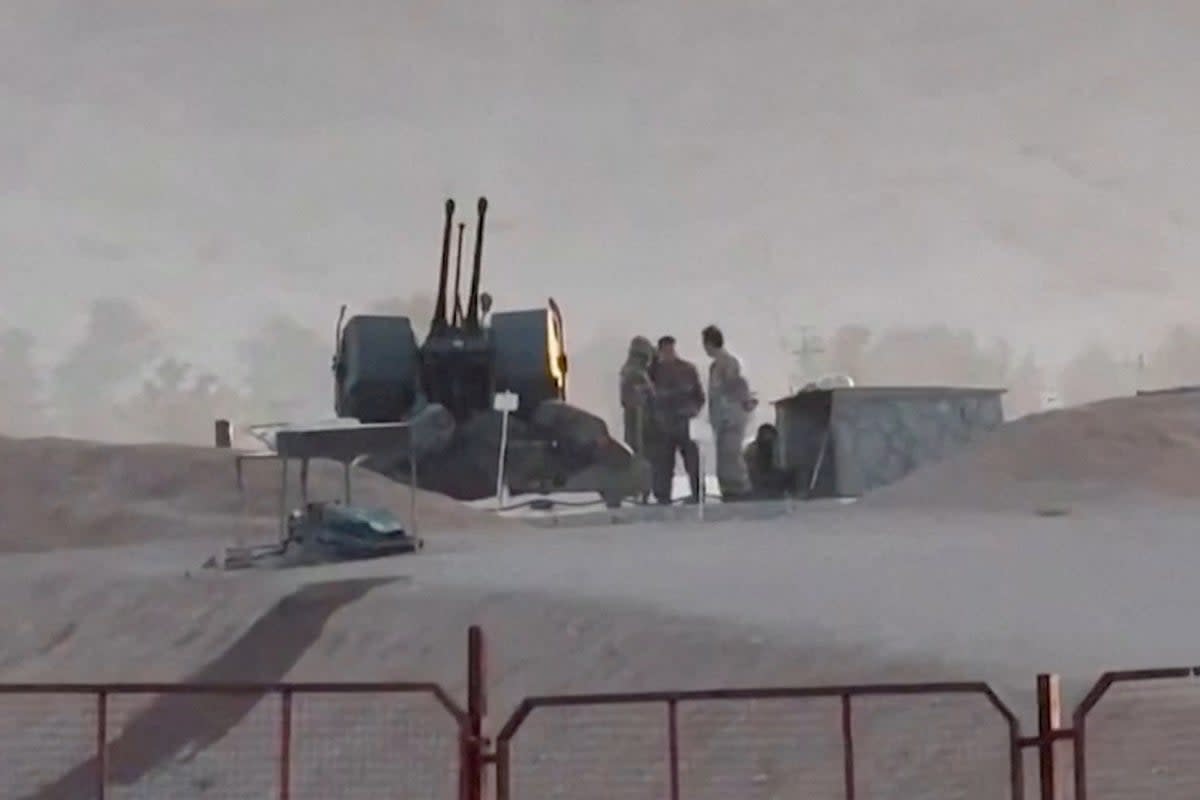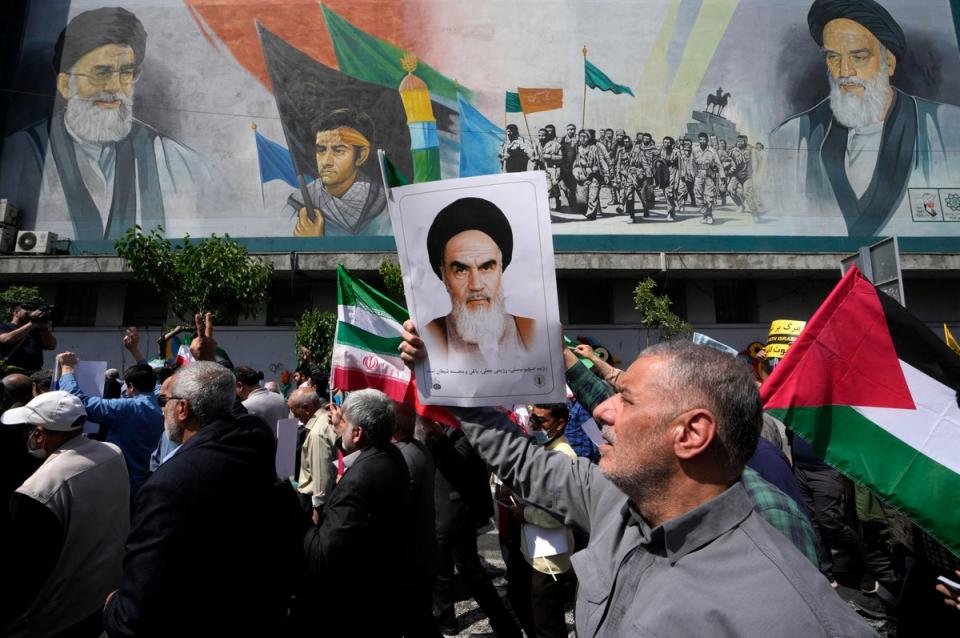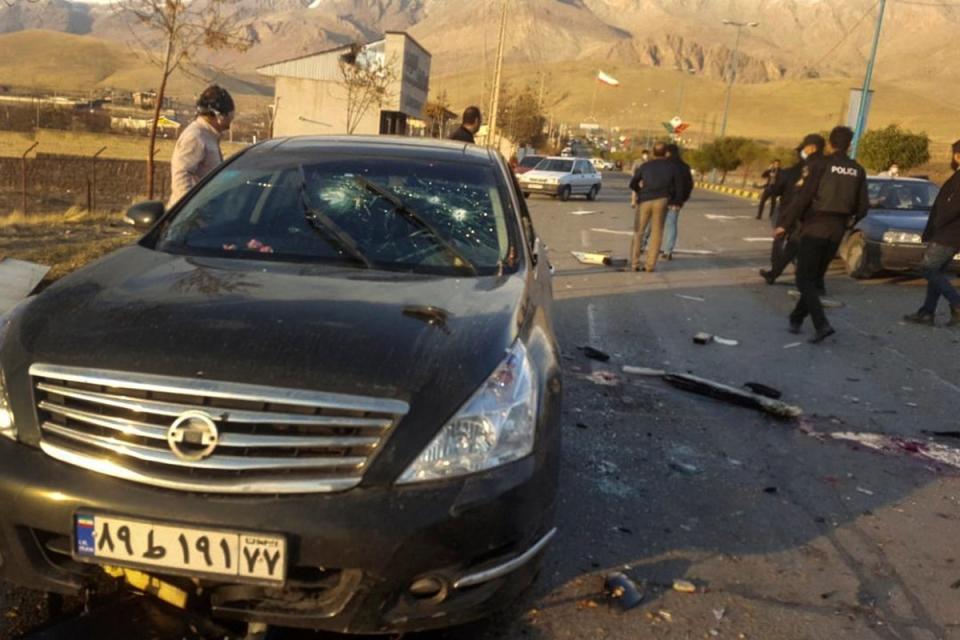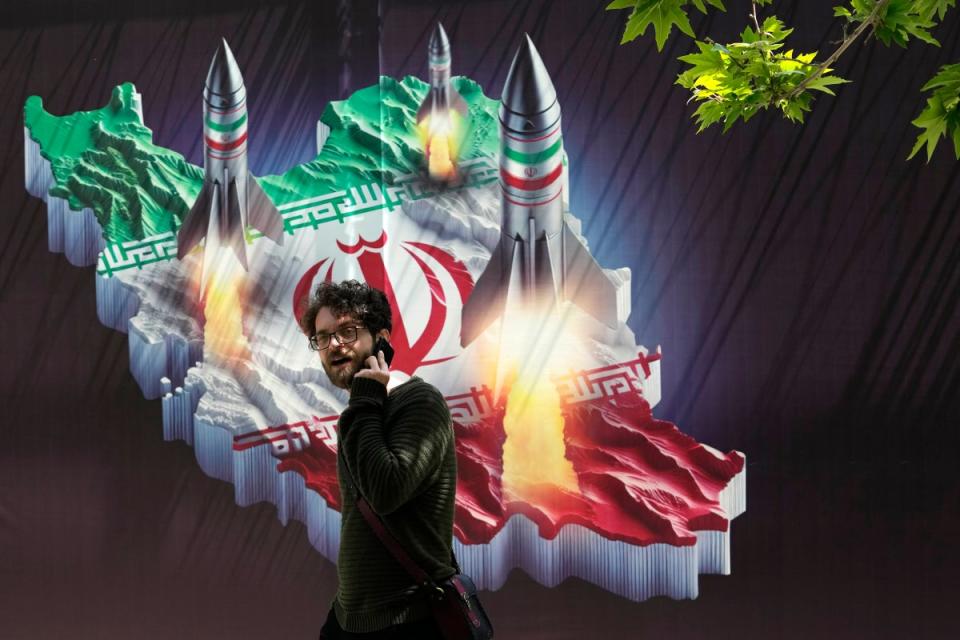Isfahan drone attack ‘carried out by secret Israeli agents within Iran’, officials fear

The attack in Isfahan, taking the confrontation between Israel and Iran to a new level of danger, may well have been carried out by drones flown by secret agents inside the country, according to officials in Tehran.
Israel has not commented on the strike, nor have any details been given by the US administration of the weapons used. However, if the drones were, indeed, launched from inside Iran, it is an indication of the extensive scale and scope of Israel’s covert operations in the Islamic Republic using assassinations, sabotage and raids on secret treasure troves of documents.
The Biden administration has repeatedly asked Benjamin Netanyahu’s government not to carry out a major attack on Iran for fear of causing a full-blown conflict. A limited strike like the one on Isfahan, possibly triggered inside Iran, would have assuaged some of that concern.

Israel had told the Biden administration, according to reports, on Thursday that a strike would come within 48 hours during a virtual meeting of the US-Israeli Strategic Consultative Group attended by US national security adviser, Jake Sullivan, and his Israeli counterpart, Tzachi Hanegbi, as well as the Israeli minister for strategic affairs, and close Netanyahu confidante, Ron Dermer.
The military airbase at the central Iranian city of Isfahan - where US built F-14s from before the Islamic Revolution are stationed - was the main target to be hit. It is next to the nuclear facility in the city.
This may have been a warning to Tehran that the facility could be hit as well. But stopping Iran getting the bomb - an existential threat - through any means necessary has been a primary Israeli security objectives.
A lethal, and prominent, example of this came on November 27 2020, when Mohsen Fakhrizadeh, regarded as the father of Iran’s nuclear programme, was travelling with his wife from Tehran to a resort accompanied by a security escort.
They were ambushed. Gunfire tore through the black Nissan Teana saloon as it crossed the Imam Khomeini Boulevard, hitting Fakhrizadeh, who was driving, in the shoulder and chest. He crawled out of the car to try to stop his wife from being hit, and was shot again. He died at the roadside.
The killing was carried out, according to varying accounts, either by a team of gunmen who had followed the convoy, or by a remote-controlled machine gun mounted on a truck, its trigger pulled a thousand miles away.

Mossad was blamed by Iran for the assassination of Fakhrizadeh – an accusation that Israel did not deny. Five other Iranian nuclear scientists had been killed in the previous 14 years, as well as the general in charge of missile development and 16 officers under his command.
Israel has maintained a policy of ambiguity about its espionage and secret operations; it has avoided commenting on some of the acts it has carried out while highlighting some others. A fictional TV series, Tehran, about a Mossad agent who is infiltrated into Iran to help sabotage a nuclear reactor, has become hugely popular in Israel.
There have been a number of cases of sabotage in the nuclear and military sector that Tehran has blamed on Israel. One of the most notable was a blast at the Natanz uranium enrichment plant three years ago, which destroyed the internal power system that supplied the underground centrifuge enriching uranium. The attack dealt a serious blow, with production effectively halted for a year.
Iranian facilities have also been subject to cyberattacks. The Stuxnet programme developed by Israel and the US, which was also aimed at Natanz among other targets, ruined 20 per cent of nuclear centrifuges, infected 200,000 official computers, and degraded a thousand machines.

In one of Israel’s biggest intelligence operations in 2018, Mossad agents broke into a security base in Tehran where nuclear archives were kept, and spirited away one and a half tonnes of material, which was later displayed at a news conference in Tel Aviv. The aim was to show that Iran was secretly trying to produce a bomb while hoodwinking the international community with talks about its civil nuclear programme.
Whether the documents actually proved this is debatable. But Netanyahu, present at the display, was adamant that this was the case. He mentioned the name of the scientist Fakhrizadeh when talking about the threat. “Remember that name,” he said. “Fakhrizadeh.”
It took Mossad more than two years to hunt down and eliminate the man considered to be of pivotal importance to Iran’s nuclear programme. It remains to be seen whether the shadow war of assassination and sabotage is further activated with Israel and Iran locked in their current deadly confrontation.

 Yahoo News
Yahoo News 
